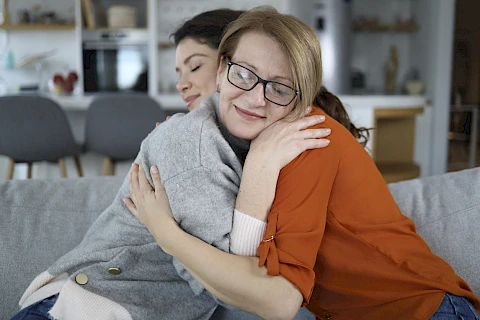
As our senior loved ones age, it's easy to overlook their mental well-being amidst other health concerns. Adult children play a critical role in advocating for mental health screenings for their senior parents or older relatives. Senior Helpers High Point provides insights on how to bring up the topic, navigate common obstacles, and maintain the conversation without adding strain to your relationships.
The Need for Mental Health Screenings
Common mental health issues in seniors include depression, anxiety, and cognitive disorders like dementia. Early detection and treatment of these conditions can significantly improve the quality of life for your loved ones. Screenings can help identify issues before they become severe, allowing timely intervention.
Mental health issues in seniors often go unnoticed or are misattributed to aging. Recognizing the need for mental health screenings is the first step in ensuring your senior family member receives the care they need.
How to Bring Up the Topic
Discussing mental health with senior family members can be delicate. Find a quiet, comfortable setting where you both feel relaxed and have ample time to talk.
Use compassionate and non-judgmental language. This helps in making the conversation more receptive. Avoid using terms that might seem accusatory or stigmatizing. Let your elderly loved one know you've noticed changes in their behavior, mood, or daily habits and that you are worried about them. Sharing articles, pamphlets, or websites on senior mental health can be helpful.
Navigating Common Obstacles
While bringing up mental health can be tough, several common obstacles may arise. Many seniors grew up in a time when mental health was not widely discussed. Explain that mental health is as important as physical health and that screenings are normal and beneficial. Your loved one may deny having any problems or resist seeing a professional. Reassure them that seeking help is a sign of strength, not weakness.
Be prepared for a range of emotions, from anger to sadness. Stay calm and supportive, letting them know you're there for them. Sometimes, having other loved ones involved can help persuade them about the importance of mental health screenings.
Maintaining the Conversation
Following up regularly without being intrusive is key to ensuring they feel supported without feeling pressured. Encourage them to have regular check-ups and mental health screenings as part of their routine health care. This can help normalize the process.
Be there for them, listen to their concerns, and keep offering your support. Small gestures of care can make a big difference. If the situation does not improve, consider seeking help from a professional counselor or psychiatrist who specializes in geriatric mental health. Sometimes, hearing from an expert can make a big difference.
Contact Senior Helpers for Assistance With Senior Mental Health
Advocating for mental health screenings for your senior family members is a vital step in safeguarding their well-being. By choosing the right time and approach to bring up the topic, navigating common hurdles, and maintaining the conversation with empathy and care, you can make a significant positive impact on their lives. Early detection and treatment can vastly improve the quality of life for your loved ones. If you live in Asheboro, High Point, Pleasant Garden, Randleman, or Trinity, contact us at High Point for professional guidance and senior care services.